Now the whole world is trying to live without sugar or limit its amount. The keto diet is one way to lead a healthy, sugar-free life and enjoy the benefits of a low-carb diet. We have already discussed the best sweeteners for the keto diet, and you can choose the one that is right for you. However, we did not discuss Splenda as one of the possible keto options.
To be more precise, we have discussed some of its components and their effect on your body, but not Splenda’s effect in general. But since Splenda is the most talked-about sweetener in the keto diet world, let’s look at it in detail. Is Splenda keto-friendly?
No, Splenda is not keto, and it may affect your ketosis as it contains carbs. In addition, Splenda contains a small amount of glucose, which quickly enters the bloodstream and affects your insulin spikes. You should not consume Splenda on a keto diet.
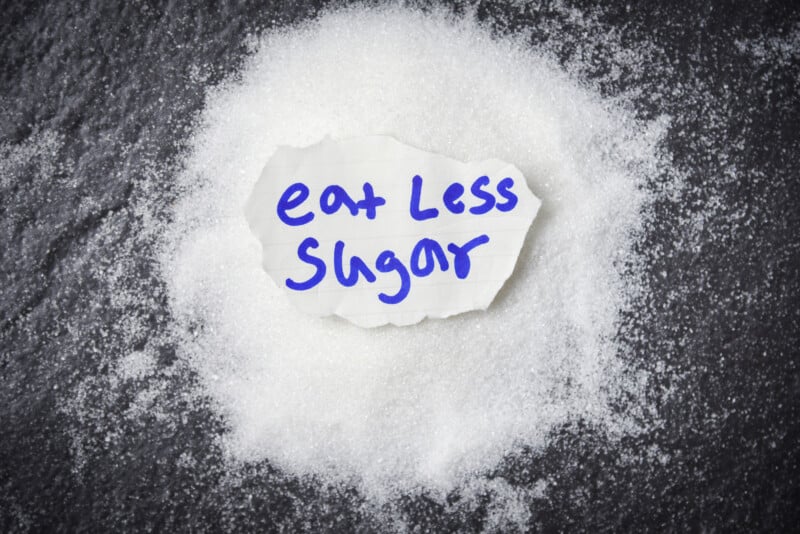
What ingredients does Splenda contain? How many calories and net carbs are there in one serving? How does Splenda affect your health, and is it safe? In this article, we will look at the detailed composition of Splenda, discuss its benefits during the keto diet, and some of the research related to Splenda’s effect on your health. Are you interested in knowing all the details? Then keep reading for more information!
What is Splenda?
Splenda has been a very popular brand producing sweeteners for almost 25 years. Now, this manufacturer has various products such as Splenda Stevia and Splenda Monk Fruit. However, the most popular product is the classic Splenda Sucralose-based sweetener. That’s what they usually mean by the name Splenda. It is this sweetener that we will talk about further.
Sucralose is made using sugar and chlorine, which keeps the sugar from being metabolized in your body. This way, the sugar molecules don’t enter your bloodstream and cause insulin changes. Splenda has the same sweetness as sugar and is usually used in a 1-to-1 ratio. It is suitable for cooking and baking and generally acts like sugar. Splenda is added to many ready-made foods around the world. Manufacturers claim that this sweetener contains zero calories, but this is not entirely true. Let’s look at the composition, calories, and carbs in Splenda in more detail.
Is Splenda Keto?
Since sucralose does not enter your bloodstream and does not affect your insulin levels, Splenda is commonly considered a zero-calorie sweetener. For this reason, people often believe it is keto-friendly and use it without restrictions. However, is Splenda keto?
Actually, this question has hidden details. Although Splenda is considered to be sucralose, it contains dextrose and maltodextrin. Sucralose has sweetness 600 times greater than sugar, and the addition of dextrose and maltodextrin allows Splenda to be used as sugar in proportion. So you don’t have to use microdoses of Splenda, and you can consume it like regular sugar. On the one hand, it is very convenient, but such a composition of Splenda no longer has a zero-calorie content.
Is Maltodextrin Keto? Dangers and Alternatives
If sucralose is a relatively good choice for a keto diet, then dextrose and maltodextrin are not good options. Dextrose is basically glucose, which is pure sugar. Maltodextrin is also a special carb form with a very high glycemic index (higher than glucose). Both of these components getting into your bloodstream are absorbed into the blood instantly since they do not need additional metabolic processes.
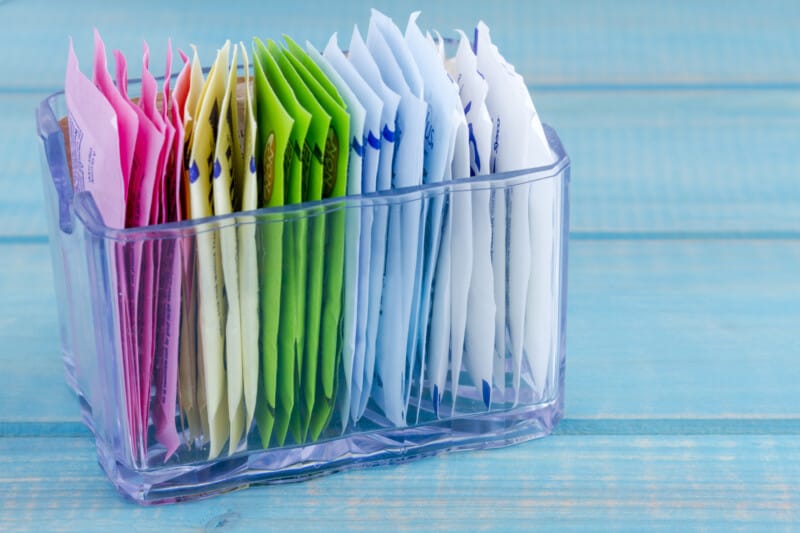
If you calculate the calorie content of one Splenda serving, then sucralose contains zero calories, while maltodextrin and dextrose provide 3.4 calories. According to FDA regulations, a product may be labeled “zero-calorie” if one serving contains less than 5 calories. So, as you can see, Splenda is not a completely non-caloric sweetener, and it will affect your blood sugar and insulin levels.
From this information, we can conclude that Splenda is not keto-friendly. And while one serving is unlikely to break your ketosis, it’s common for people to consume multiple servings of baked goods or drinks. Remember that you should be getting 20 grams of your daily carbs not from sugar but fiber-rich vegetables.
Can Splenda Harm Your Health?
Sucralose, or Splenda, is the most popular artificial sweetener. This substance is found in many commercially produced foods, many of which are intended for diabetics and/or people who want to lose weight. But how useful is it for you? Let’s take a look at the five top reasons to avoid Splenda on a keto diet.
Worsens Gut Health
Studies show that sucralose negatively affects the intestinal microflora. According to some experiments, the consumption of this sweetener can destroy up to 50% of beneficial microflora. In addition, Splenda has the ability to reduce the number of bifidobacteria and lactic acid bacteria, inhibiting their reproduction. Also, this sweetener has a bacteriostatic effect, that is, the ability to suppress the further growth of beneficial microflora.
Since a person’s immune system depends on the state of the microflora in the intestines, the death of this microflora inevitably leads to the fact that your immunity reduces. The place of beneficial microorganisms is immediately occupied by pathogens, which are very difficult to get rid of. What’s more, one study proved not only the deterioration of the microbiome in rats but also the symptoms of chronic liver inflammation. [1]
The result of the death of beneficial microflora is a variety of diseases: from frequent colds to cancer. And also, the deterioration of gut health provokes weight gain since healthy weight is associated with the normal functioning of the microflora. And if the microflora is sick, it is difficult to maintain a healthy weight. Overall, the negative effects of Splenda on the gut microbiome and gut health in humans are not yet well understood, but the negative effects in rodents are alarming.
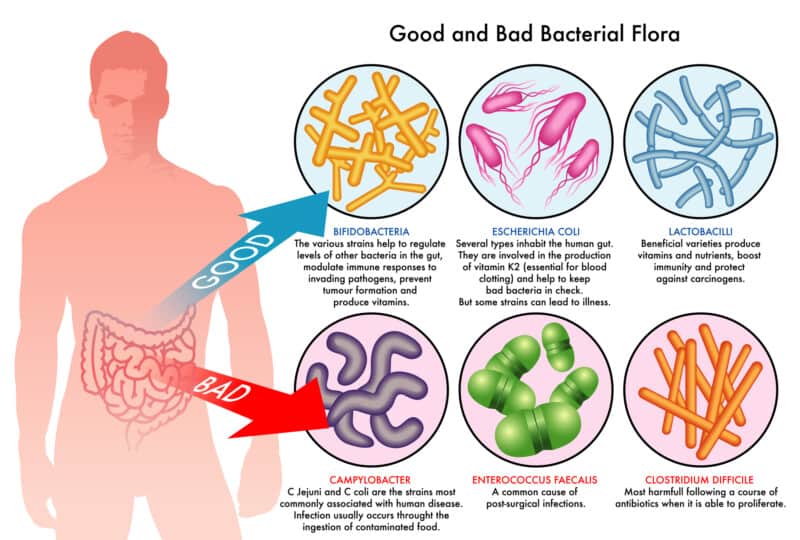
Raises the Risk of Cancer
Splenda manufacturers claim that it is stable and, therefore, it can be used in cooking, for example, for sweet pastries. But in fact, during the heat treatment of sucralose, chloropropanols are formed – toxic substances belonging to the class of dioxins. The formation of toxins begins already at 119 degrees Celsius. At 180 degrees, sucralose is completely destroyed. The main consequences of human consumption of dioxide compounds are endocrine disorders and cancer.
It is especially dangerous to heat sucralose in stainless steel dishes since, in this case, not only dioxins are formed but also many other toxic compounds. These compounds can provoke various types of cancer and other health problems.
However, there are studies that can confirm the carcinogenic property of sucralose without heating. One study included various types of sweeteners, including sucralose. It showed that sweeteners could induce increased risk levels of thyroid cancer. [2] However, research is still ongoing and more data will take time.
Raises Blood Sugar
Although sucralose is not absorbed into the blood and is not involved in metabolism, it can still cause slight increases in insulin and blood sugar levels. However, we have already found out that Splenda contains not only sucralose, which is “safe” for sugar levels but also dextrose in combination with maltodextrin. These two carbs have the highest glycemic indexes and strongly affect your blood sugar levels. And although the total amount of dextrose and maltodextrin in one serving of Splenda is small, the high glycemic index makes it very dangerous for your ketosis.
In numerous experiments involving both human volunteers and animals, it has been proven that Splenda significantly affects blood levels of glucose, insulin, and glucagon-like peptide-1 (GLP-1). [3] However, some studies provide conflicting results showing that sucralose does not affect insulin and GLP-1 levels. [4] Nevertheless, Splenda contains sucralose and dextrose in combination with maltodextrin, which have a high glycemic index and increase blood sugar levels.
Should I Count Calories on Keto?
Splenda is very popular among diabetics as it is claimed to be safe and does not affect insulin levels. However, research confirms the opposite, and it can be concluded that Splenda worsens the condition of patients with diabetes.
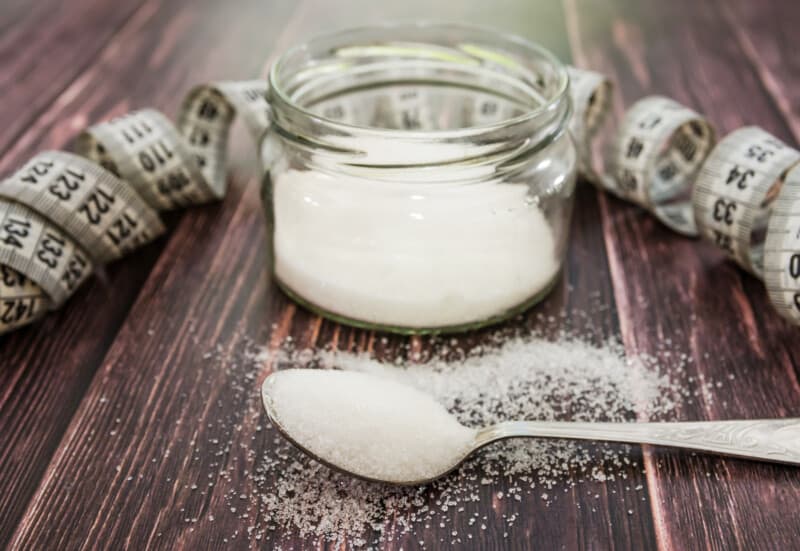
Provokes Appetite and Weight Gain
It would seem that sweeteners exist to make it easier for people to diet and lose weight. They certainly have fewer calories than sugar, but they can also lead to weight gain. However, studies on this subject have conflicting data regarding the causes of weight gain due to sucralose. One study looks at the potential of sucralose to alter the thyroid’s insulin response, while another suggests an increased rate of glucose absorption under the influence of sucralose. [5]
However, we can say for sure that sucralose increases sugar cravings on keto and other diets. There are two explanations for this. One study shows that sucralose, when consumed regularly, affects the sweet taste receptors in the gut, impairing their response and increasing sugar cravings. [6]
However, the biggest danger of sweeteners on keto, like Splenda or any other, is in the psychological aspect. And while keto desserts with sweeteners can help you overcome sugar cravings, eating them regularly can only make things worse. By eating food that tastes sweet but does not have carbs in its composition, you are fooling your brain. It feels sweet taste and is ready for sugar energy, but it doesn’t get any. As a result, your brain may be sending out sugar craving signals in expectation of getting the sugar that your taste buds feel.
Simply put, the sweet taste of a sweetener makes your brain wait and crave sugar. Therefore, the regular use of keto sweeteners provokes uncontrolled appetite, sugar cravings, overeating, and violations of the keto diet. Of course, you can sometimes eat keto desserts to avoid breaking the keto diet, but you should not do this too often and control your daily carb intake.
Causes Intolerance
In addition to the side effects of Splenda listed above, many people suffer from intolerance to this artificial sweetener. Such reactions develop immediately or after some time with regular use of Splenda. Unfortunately, the side effects of taking Splenda often go unrecognized because there are so many of them. Here are the main symptoms of intolerance to sucralose [7], which usually develop within 24 hours:
- Skin: redness, itching, swelling and blistering, rash, often hives.
- Lungs: shortness of breath, chest tightness, difficulty breathing, and cough.
- Head: swelling of the face, eyelids, lips, tongue, throat, headaches, migraines.
- Nose: nasal congestion, runny nose, sneezing.
- Eyes: redness, itching, swelling, and tearing.
- Stomach: bloating and flatulence, nausea, vomiting, abdominal pain, diarrhea.
- Heart: palpitations and tachycardia.
- Nervous system: anxiety, dizziness, depression, distorted reality.
To determine if you have an intolerance to sucralose, completely eliminate it from your diet. Be sure to read the list of ingredients on the labels of products carefully, as sucralose is often added to different foods, even if you do not expect it. If your symptoms are indeed related to sucralose, then your condition should noticeably improve after a few days of completely avoiding the sweetener.
If this happens, set up a control experiment. Eat a small amount of sucralose and monitor your condition. If you have an intolerance, symptoms will appear within the next 24 hours. With the elimination of sucralose, it should be remembered that only the symptoms will disappear within a few days [8]. The negative effects of the influence of sucralose on the intestinal microflora will bother you for another two to three months.
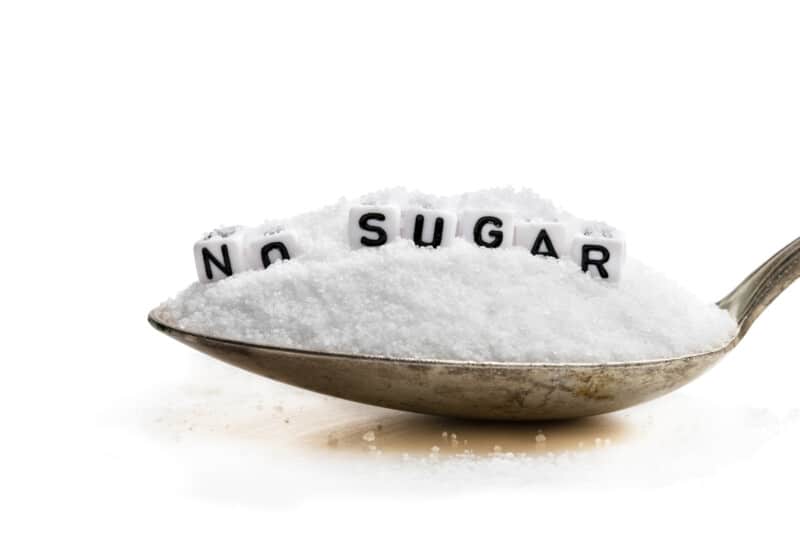
Conclusion
Even though Splenda is a popular sweetener, there is no evidence of this chemical compound’s benefit or at least safety for human health. But we have data from numerous studies proving the harm of this sweetener to health. Unfortunately, most people who intentionally use Splenda in their diet tend to lead a healthy lifestyle or are forced to do so for medical reasons. But in the end, they do not get the effect they expect.
Splenda does not have zero calories and affects blood sugar and insulin levels. In addition to sucralose, it contains dextrose and maltodextrin, with a high glycemic index. Therefore, Splenda is not keto and can harm your ketosis.
If you want to use a sweetener on keto, choose stevia, monk fruit, or erythritol. These are natural sweeteners that have no contraindications during the keto diet.
Sources:
- Bian, X., Chi, L., Gao, B., Tu, P., Ru, H., & Lu, K. (2017). Gut Microbiome Response to Sucralose and Its Potential Role in Inducing Liver Inflammation in Mice. Frontiers in physiology, 8, 487. https://doi.org/10.3389/fphys.2017.00487
- Singh, N., Singh Lubana, S., Arora, S., & Sachmechi, I. (2020). A Study of Artificial Sweeteners and Thyroid Cancer Risk. Journal of clinical medicine research, 12(8), 492–498. https://doi.org/10.14740/jocmr4258
- Lertrit, S. Srimachai, S.Saetung, S. Chanprasertyothin, L. Chailurkit, C. Areevut, P. Katekao, B.Ongphiphadhanakul, C. Sriphrapradang, Effects of sucralose on insulin and glucagon-like peptide-1 secretion in healthy subjects: a randomized, double-blind, placebo-controlled trial, Nutrition, Volumes 55–56, 2018, Pages 125-130, ISSN 0899-9007, https://doi.org/10.1016/j.nut.2018.04.001
- Ford, H., Peters, V., Martin, N. et al.Effects of oral ingestion of sucralose on gut hormone response and appetite in healthy normal-weight subjects. Eur J Clin Nutr 65, 508–513 (2011). https://doi.org/10.1038/ejcn.2010.291
- Yanina Pepino, Courtney D. Tiemann, Bruce W. Patterson, Burton M. Wice, Samuel Klein; Sucralose Affects Glycemic and Hormonal Responses to an Oral Glucose Load. Diabetes Care1 September 2013; 36 (9): 2530–2535. https://doi.org/10.2337/dc12-2221
- Qing Shi,Xuemei Zhu,Shaoping Deng. Sweet Taste Receptor Expression and Its Activation by Sucralose to Regulate Glucose Absorption in Mouse Duodenum, 01 May 2019. Health, Nutrition, & Food https://doi.org/10.1111/1750-3841.14586
- Susan S. Schiffman & Kristina I. Rother(2013) Sucralose, A Synthetic Organochlorine Sweetener: Overview Of Biological Issues, Journal of Toxicology and Environmental Health, Part B, 16:7, 399-451, https://doi.org/10.1080/10937404.2013.842523
- Farid, A., Hesham, M., El-Dewak, M., & Amin, A. (2020). The hidden hazardous effects of stevia and sucralose consumption in male and female albino mice in comparison to sucrose. Saudi pharmaceutical journal : SPJ : the official publication of the Saudi Pharmaceutical Society, 28(10), 1290–1300. https://doi.org/10.1016/j.jsps.2020.08.019